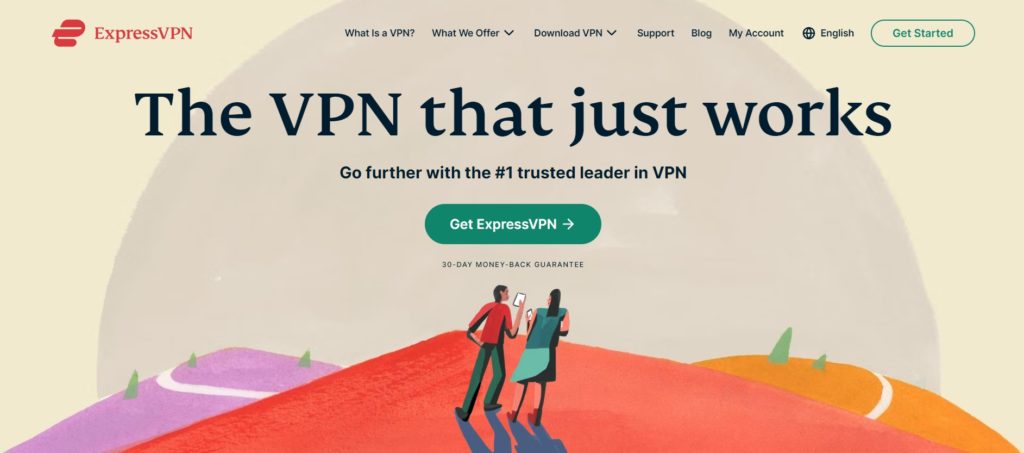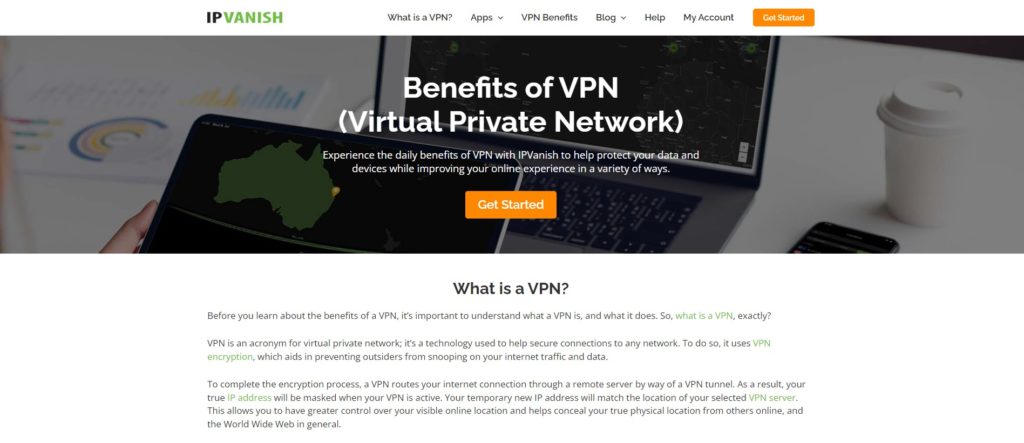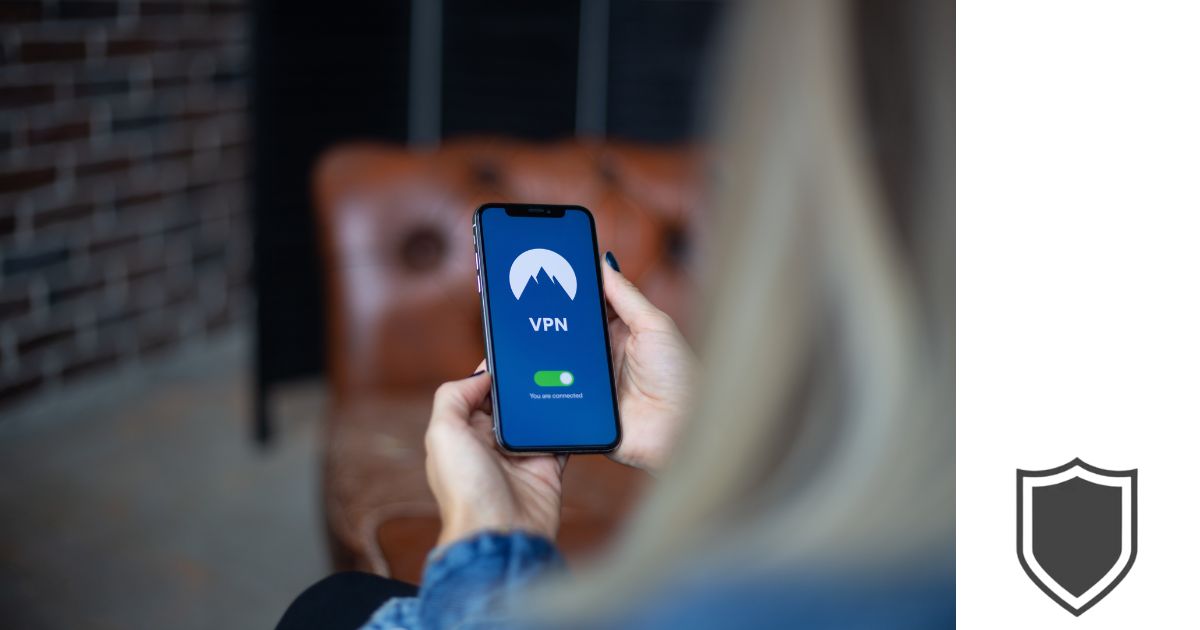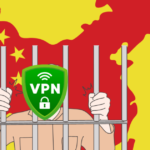Within the domain of Virtual Private Networks, often known as VPNs, ExpressVPN and IPVanish stand out as two prominent frontrunners.
Both offer a range of features aimed at protecting your online privacy, securing your connection, and providing you with access to geo-restricted content. But with so many similarities, it can be challenging to determine which one is the better choice for your needs.
ExpressVPN and IPVanish are, without a doubt, strong contenders in the VPN market, each with its own strengths and weaknesses.
In this article, we will explore their key features, comparing everything from server networks to streaming and torrenting capabilities. We will also scrutinize their privacy policies, pricing, and customer support, enabling you to make an informed decision when choosing between these two VPN heavyweights.
Key Takeaways
- ExpressVPN and IPVanish offer competitive features, from network coverage to security protocols.
- While both providers excel in different areas, their differences in privacy policies and pricing may be decisive.
- Evaluating factors such as ease of use, customer support, and performance will help you determine the best fit for your unique needs.
Table of Contents
Features Comparison
Security and Encryption
When it comes to security and encryption, both ExpressVPN and IPVanish offer robust features to ensure users stay safe and secure online. For instance, both providers utilize 256-bit AES encryption, the industry-standard for data protection. Additionally, both VPNs offer a kill switch feature, which is essential for maintaining privacy when your connection to the VPN is interrupted.
Differentiating themselves from the security features similarities are the encryption protocols. ExpressVPN offers multiple secure protocols such as OpenVPN, WireGuard, and its proprietary protocol, Lightway. On the other hand, IPVanish mainly relies on OpenVPN and WireGuard.
It’s also worth noting that ExpressVPN features perfect forward secrecy, a security technology that ensures your encrypted data remains secure even if a portion of your session’s encryption keys is compromised.
Speed and Performance
In terms of speed and performance, ExpressVPN is generally considered faster than IPVanish. This is likely due to ExpressVPN’s extensive server network and their investment in the Lightway protocol, which is designed for faster connections and lower latency. As a result, ExpressVPN users can enjoy seamless streaming, gaming, and other activities with minimal disruptions or slowdowns.
That said, IPVanish does hold its own when it comes to speed, and many users won’t notice a significant difference between the two providers in everyday use.
Supported Devices
Both ExpressVPN and IPVanish cater to a wide range of devices and platforms, including Windows, Mac, iOS, Android, and Linux. Furthermore, these services offer support for a variety of routers and browser extensions.
ExpressVPN is known for its user-friendly apps and easy-to-navigate settings, while IPVanish offers a more customizable interface which power users may appreciate. Thus, when it comes to supported devices, both providers are on par with each other, and the choice ultimately comes down to personal preferences.

Server Networks
Server Locations
When it comes to server locations, both ExpressVPN and IPVanish offer wide coverage. ExpressVPN boasts an extensive network spanning 94 countries with various locations in each region. This ensures that users can access a diverse range of content from all over the world and enjoy high-speed connections, no matter where they’re located.
On the other hand, IPVanish offers server locations in over 50 countries, covering major regions like North America, Europe, Asia, and Oceania. While this network isn’t as extensive as ExpressVPN, it still provides users with plenty of options for bypassing geo-restrictions and maintaining fast connection speeds.
Server Count
In addition to the number of countries covered, the server count of a VPN is also a critical factor to consider. A higher server count generally means better performance and lower chances of server congestion.
ExpressVPN has an impressive 3,000+ servers in its network, offering a reliable service with less risk of slow speeds due to overcrowding. This vast number of servers allows them to distribute users evenly across the network, reducing the likelihood of bottlenecks and maintaining optimal performance.
IPVanish, on the other hand, has a slightly smaller network with 1,600+ servers. While these numbers are not as high as ExpressVPN’s server count, IPVanish still provides a significant amount of capacity for its users. Users can still expect fast and reliable connections, even during peak usage hours.
Overall, comparing the server networks of ExpressVPN vs IPVanish shows that they both offer excellent coverage in terms of server locations and a sufficient number of servers to handle their user base.
However, ExpressVPN has the edge with a more extensive network of servers in a greater number of countries, ensuring more options for users to connect and maintain fast connection speeds.
Streaming and Torrenting
Unblocking Netflix
When it comes to unblocking Netflix, both ExpressVPN and IPVanish offer reliable solutions.
With ExpressVPN, we can access Netflix libraries in various regions, including the US, the UK, and Canada, thanks to its vast network of servers. The streaming quality is excellent, with no buffering or lag.
IPVanish also performs well in unblocking Netflix, but its server coverage is not as extensive as ExpressVPN.
Torrenting Supports
Torrenting requires fast and secure VPN connections.
Both ExpressVPN and IPVanish support P2P activities on their servers.
We found that ExpressVPN provides consistently high speeds, which are crucial for smooth torrenting. With its strong encryption and no-logs policy, our privacy is also well protected.
On the other hand, IPVanish also supports torrenting across all its servers and employs a no-logs policy, ensuring our data isn’t stored.
While IPVanish’s speeds are generally good, in our experience, ExpressVPN has a slight edge in performance.
Both ExpressVPNs and IPVanish are capable of unblocking Netflix and supporting torrenting activities. However, due to its broader server coverage and slightly better performance, ExpressVPN seems to be a more optimal choice for streaming and torrenting purposes.

Simultaneous Connections and Device Compatibility
Number of Simultaneous Connections
When comparing ExpressVPN vs IPVanish, a significant difference is the number of devices that can be connected simultaneously. IPVanish allows its users to connect up to 10 simultaneous devices, giving them more options to secure multiple gadgets.
On the other hand, ExpressVPN permits only 5 simultaneous connections. However, this should still suffice for most users’ needs.
App Availability
Both ExpressVPN and IPVanish provide native desktop and mobile applications for various platforms. The primary operating systems covered by both VPNs include:
- Windows: Both services offer Windows applications that are user-friendly and efficient.
- macOS: Both VPNs also have macOS applications that seamlessly blend with the operating system.
- Linux: ExpressVPN and IPVanish provide dedicated Linux applications for users of this OS.
- Android: Android users can benefit from both ExpressVPN and IPVanish, as they have apps available on the Google Play Store.
- iOS: Both VPNs offer iOS applications designed for user-friendliness and efficiency.
Additionally, we find that both VPNs cater to a wide range of devices and platforms, such as routers, Amazon Fire TV Stick, and browser extensions for popular web browsers like Chrome, Firefox, and Microsoft Edge.
Regarding routers, both services have dedicated router apps, making it easy for users to set up the VPN directly on their routers instead of configuring each device individually.
This will enable users to secure all connected gadgets in their network. It is also worth mentioning that using a VPN on a router counts as a single connection, so users can connect more devices than their VPN’s simultaneous connections limit.
In conclusion, both ExpressVPN and IPVanish offer robust device compatibility and support for various popular operating systems and platforms. Users can expect dedicated and easy-to-use applications across devices, making their experience more seamless and secure.
Privacy and Jurisdiction
No-Logs Policy
When it comes to VPN services, a strict no-logs policy is essential to ensure the privacy of users. ExpressVPN is widely known for its strong stance on privacy, boasting a no-logs policy that ensures no connection or activity logs are stored.
This means that your online activities remain private, and ExpressVPN cannot provide any data about your usage to third parties.
On the other hand, IPVanish also claims to follow a no-logs policy. However, in the past, they have provided user data to authorities when requested, which might make some users question their commitment to privacy.
Regardless, IPVanish has since changed hands and now reiterates their commitment to maintaining user privacy through a strict no-logs policy.
Jurisdiction and Legal Protections
Jurisdiction plays a crucial role in the privacy offered by VPN services. ExpressVPN is based in the British Virgin Islands, a location outside the jurisdiction of the 5, 9, or 14 Eyes intelligence-sharing alliances.
This means ExpressVPN operates in a privacy-friendly environment, free from the invasive surveillance laws that can impact VPN providers based in countries like the US.
IPVanish, on the other hand, is based in the US, a member of the Five Eyes alliance. This could pose potential risks for user privacy, as US-based VPNs are under the jurisdiction of the country’s strict data retention and surveillance laws.
While IPVanish maintains its no-logs policy, it is essential for users to weigh the potential risks of choosing a US-based VPN service.
Another essential aspect of privacy in VPN services is protection against DNS leaks.
Both ExpressVPN and IPVanish include features to prevent DNS leaks, ensuring that your online activities remain private, even if a connection drops.
So, while both ExpressVPN and IPVanish are committed to user privacy through their no-logs policies and DNS leak prevention, their differing jurisdiction may be a factor to consider when choosing between these two VPN services.
Pricing and Money-Back Guarantee
Plan Options
When it comes to pricing, both ExpressVPN and IPVanish offer similar plans with various durations to suit users’ needs.
ExpressVPN offers a monthly price of $12.95, while you can save by opting for their 6-month plan at $9.99 per month. The most cost-effective option is their annual plan billed at $2.59 per month.
IPVanish provides a more flexible and customizable pricing structure. They also offer monthly, quarterly, and annual plans. While specific pricing might vary, their plans generally tend to be less expensive than ExpressVPN’s.
Money-Back Guarantee
It’s good to have a money-back guarantee in case the service doesn’t meet your expectations.
ExpressVPN offers a 30-day money-back guarantee, giving you ample time to test their service risk-free. On the other hand, IPVanish has a shorter period of just 7 days for their money-back guarantee.
Trials
Currently, neither ExpressVPN nor IPVanish provide free trials. However, their respective money-back guarantees give you the chance to evaluate their service before fully committing.
While ExpressVPN’s pricing is a bit higher, their 30-day money-back guarantee provides more confidence when trying out their service. IPVanish may be a more affordable option, but with a shorter money-back guarantee period.
Customer Support and Ease of Use
Help Resources
Both ExpressVPN and IPVanish offer a variety of help resources for their users.
ExpressVPN has an extensive knowledge base and frequently asked questions section on their website. They also provide 24/7 live chat customer support, which sets them apart from IPVanish.
On the other hand, IPVanish relies on an email ticketing system for customer service, which may be slower than ExpressVPN’s live chat support. They also have a knowledge base and support articles available on their website, but the absence of live chat may put them at a disadvantage in terms of customer satisfaction.
User Experience and Interface
When it comes to user experience, our evaluation found both VPNs to be fairly easy to use. ExpressVPN provides a simple interface with easy navigation on all devices. Their apps are intuitive and allow users to quickly connect to a server or adjust settings as needed.
IPVanish, while also offering a user-friendly experience, has a slightly more complex interface. However, users can still easily navigate the app, select servers, and adjust settings. The choice between the two may come down to personal preference, as both VPNs deliver a seamless experience for the average user.
In terms of device compatibility, ExpressVPN supports five simultaneous connections per subscription, while IPVanish offers unlimited connections. This means IPVanish may be a better value for those who need to use the VPN on multiple devices simultaneously.
Company Background and Ownership
ExpressVPN Company Information
ExpressVPN is one of the leading virtual private network (VPN) providers in the industry. Their commitment to providing secure and reliable connections, while respecting user privacy, has allowed them to build a strong reputation among VPN users.
Their parent company, Kape Technologies, acquired ExpressVPN in 2022. Kape Technologies, a cybersecurity-focused technology company, shares a dedication to user privacy and security.
IPVanish Company Information
IPVanish, on the other hand, operates as part of the wider J2 Global corporation. J2 Global, a digital services and technology company, acquired IPVanish in 2021. This acquisition brought the VPN vendor into J2 Global’s Network Security division, alongside other well-known VPN brands.
The company has undergone several ownership changes, and its history includes a troubled past, wherein they logged user data for the FBI. However, IPVanish has been working to rebuild its reputation and assert itself as a secure and trustworthy VPN provider.
We would like to note these aspects of IPVanish’s history, not to denigrate the company, but only to share accurate information you can consider when making an informed decision about the VPN service that best suits your needs.
As two of the most popular VPN services available, both ExpressVPN and IPVanish are dedicated to providing reliable, secure, and user-friendly virtual private network solutions for individuals and businesses alike.
ExpressVPN vs IPVanish FAQs
Which VPN has better speeds, ExpressVPN or IPVanish?
When comparing VPN speeds, it’s important to note that factors like server location, connection protocols, and network conditions can all have an impact on the speed of your connection. That being said, ExpressVPN is often praised for its fast connection speeds and is widely considered to be one of the faster options on the market. IPVanish offers solid speeds as well, but they may not be as consistently high as ExpressVPN’s.
How do ExpressVPN and IPVanish compare on security features?
Both ExpressVPN and IPVanish offer strong encryption and security features, keeping your data safe while you browse the internet. They both use industry-standard AES-256 encryption and offer a variety of connection protocols to choose from. Additionally, both services include an automatic kill switch feature to prevent data leaks if the VPN connection is interrupted. However, ExpressVPN is often considered more secure due to its additional security features, such as RAM-only servers and TrustedServer technology, which ensures no data is stored on hard drives.
What is the price difference between ExpressVPN and IPVanish?
ExpressVPN and IPVanish have different pricing structures, with ExpressVPN generally being more expensive. The monthly cost of ExpressVPN is $12.95, while IPVanish’s 24-month plan costs only $2.59 per month. Keep in mind that longer subscription periods usually result in lower monthly costs for both services.
How user-friendly are the applications for ExpressVPN and IPVanish?
Both ExpressVPN and IPVanish offer easy-to-use applications with intuitive interfaces for various devices and platforms. Users report that the setup process is straightforward, and the apps are designed to make connecting to a VPN server simple. However, individual preferences and experiences may vary, and it’s essential to find a VPN service that meets your specific needs.
Which VPN offers a larger server network, ExpressVPN or IPVanish?
ExpressVPN boasts a larger server network than IPVanish, with over 3,000 servers in 94 countries. In contrast, IPVanish has more than 1,900 servers in 75+ locations around the world. A larger server network can result in better connection speeds and more options for bypassing geo-restrictions.
How do ExpressVPN and IPVanish handle their customers’ privacy?
ExpressVPN is known for its strict no-logs policy and is headquartered in the British Virgin Islands, a privacy-friendly jurisdiction. IPVanish also has a no-logs policy, but is based in the United States, which may raise some privacy concerns due to the country’s data retention laws and surveillance practices. In general, both services prioritize user privacy and aim to protect customer data in line with their respective policies.
To conclude, both ExpressVPN and IPVanish offer compelling features that cater to various VPN needs.
While ExpressVPN leads the pack with its robust global server network and stellar speed performance, IPVanish stands strong with its unlimited device connections and comprehensive data controls.
The choice between the two ultimately boils down to your specific requirements. If speed and global coverage are paramount, ExpressVPN may be your best bet.
But if you’re looking for value in managing multiple devices simultaneously, IPVanish has an edge.
Remember, the right VPN service for you is one that best fulfills your internet privacy and security needs. Stay safe, and browse with confidence!
- Amazon Email Phishing: How to Identify and Avoid Scams - May 11, 2025
- Malwarebytes vs McAfee: Decoding the Ultimate Antivirus Battle - May 11, 2025
- Best Antivirus for Windows 10: Expert Recommendations for 2023 - May 11, 2025









